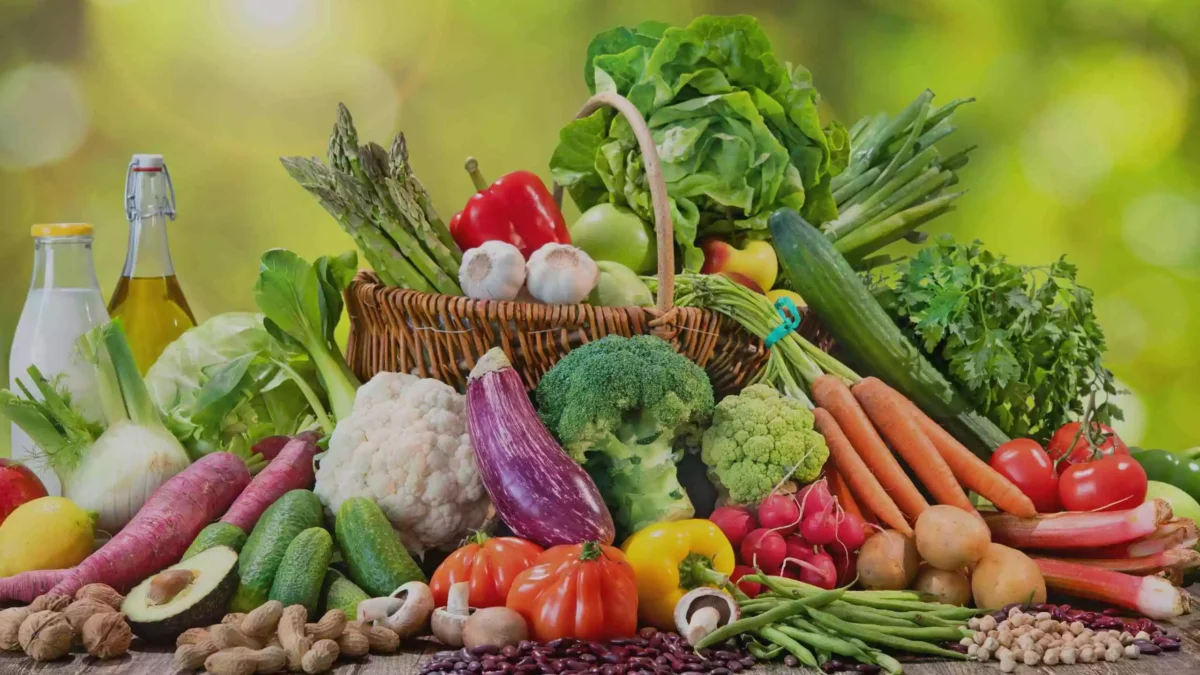
Strength Training for Seniors: Benefits And Beginner Exercises
July 20, 2025
The Role of Pets in Enhancing Senior Health And Happiness
July 29, 2025Eating nutrient-rich foods can rejuvenate aging skin and promote a radiant complexion. Include antioxidants, vitamins, and healthy fats in your diet.
As we age, our skin requires extra care and nourishment to maintain its youthful glow. Nutrition plays a crucial role in skin health, helping to combat signs of aging such as wrinkles, dryness, and loss of elasticity. Consuming a diet rich in antioxidants, vitamins, and healthy fats can enhance your skin’s appearance.
Foods like berries, nuts, and leafy greens provide essential nutrients that support skin regeneration and hydration. Omega-3 fatty acids found in fish and flaxseeds help maintain skin’s suppleness. Prioritizing these nutrient-dense foods can lead to a more radiant, youthful complexion, making your skin look and feel its best.
The Connection Between Diet And Skin Health
Good nutrition keeps skin healthy and youthful. Vitamins and minerals help skin repair itself. Antioxidants fight free radicals that cause aging. Omega-3 fatty acids reduce inflammation. Hydration keeps skin plump and smooth. Eating balanced meals supports skin health.
| Nutrient | Benefit |
| Vitamin C | Boosts collagen production |
| Vitamin E | Protects against UV damage |
| Omega-3 Fatty Acids | Reduces inflammation |
| Water | Keeps skin hydrated |
Antioxidants: The Skin’s Best Friend
Oranges are rich in Vitamin C. They help in collagen production. Berries like strawberries and blueberries are also good. They keep the skin firm and smooth. Kiwi and bell peppers are other great sources. They protect skin from damage and aging.
Dark chocolate is rich in antioxidants. It helps protect the skin from UV damage. Eating a small piece daily can improve blood flow to the skin. This makes the skin more radiant and hydrated. Dark chocolate also reduces roughness and scaling. Choose chocolate with at least 70% cocoa for best results.
Omega-3 Fatty Acids And Hydrated Skin
Salmon is a great source of Omega-3 fatty acids. Chia seeds also provide Omega-3s. Walnuts offer a plant-based option. Flaxseeds are another good choice. Mackerel is rich in Omega-3s too. Sardines are small but packed with these fatty acids. Hemp seeds can be added to many dishes. Anchovies are tiny but nutritious. Herring is tasty and good for skin health. Soybeans offer a vegetarian option.
Omega-3s help maintain skin elasticity. These fatty acids reduce inflammation in the skin. They also help keep skin hydrated. Omega-3s can improve skin barrier function. This leads to better moisture retention. Healthy skin looks more radiant and youthful.
Vitamin E: A Shield Against Skin Damage
Nuts and seeds are full of Vitamin E. They help repair damaged skin. Almonds and sunflower seeds are great choices. These foods keep your skin soft and smooth. Eat a handful of nuts every day. This will boost your skin health. Mix seeds in your meals for extra benefits.
Balance your Vitamin E intake. Too much can be harmful. Aim for a daily dose from food sources. Avoid taking high-dose supplements. Focus on a varied diet. Include different nuts and seeds. This helps maintain a healthy balance. Your skin will look more radiant and youthful.
Selenium: The Unsung Hero For Aging Skin
Selenium keeps skin glowing. It fights free radicals. Brazil nuts are rich in selenium. Eggs also have selenium. Include chicken and tuna in meals. Brown rice provides selenium too. Sunflower seeds are a good snack.
Selenium works well with Vitamin E. Together, they protect skin cells. Vitamin C boosts this effect. Oranges are full of Vitamin C. Almonds are rich in Vitamin E. Spinach has both vitamins. Eating these foods helps skin stay young.
Hydration And Skin Vitality
Boost your skin’s vitality with hydration-rich foods like cucumbers, watermelon, and leafy greens. These nutrient-packed options promote a radiant complexion and combat aging.
Water Intake Recommendations
Drinking enough water is essential for hydrated skin. Adults should aim for about 8 glasses of water each day. Your body needs more water if you exercise or live in a hot climate. Hydrated skin helps keep wrinkles at bay. Water flushes out toxins that can cause skin issues. Drinking water can improve skin elasticity. Always carry a water bottle to stay hydrated.
Hydrating Foods For Glowing Skin
Foods with high water content can boost skin hydration. Cucumbers are made up of 95% water and keep skin fresh. Watermelon is another excellent option, full of vitamins. Oranges provide vitamin C and hydration. Strawberries are tasty and hydrate the skin. Celery sticks offer a crunchy, hydrating snack. Tomatoes are another water-rich food great for the skin. Eating these foods helps keep your skin radiant and youthful.
Probiotics: Gut Health And Skin Radiance
Fermented foods like yogurt, kefir, and sauerkraut are rich in probiotics. These good bacteria help balance the gut flora. A healthy gut can improve skin health. Probiotics reduce inflammation and redness. They also help in reducing acne and eczema.
Probiotics play a key role in skin health. They boost the immune system. This helps the skin fight off harmful bacteria. Probiotics also enhance skin hydration. Hydrated skin looks more radiant and youthful.
The Impact Of Phytonutrients On Skin Aging
Colorful vegetables like carrots, spinach, and bell peppers help keep skin young. These veggies are full of antioxidants that fight skin damage. Carrots are rich in beta-carotene, which protects skin from the sun. Spinach has vitamin C, which helps make collagen. Bell peppers have vitamin E, which keeps skin smooth.
Include more colorful veggies in your meals. Add carrots to salads or smoothies. Spinach can be mixed into soups or pasta. Bell peppers can be eaten raw or cooked. Try to eat a variety of colors each day. This way, you get different phytonutrients that help your skin stay healthy.
Avoiding Sugar For Better Skin Quality
Sugar makes your skin age faster. It causes wrinkles and fine lines. Sugar damages collagen and elastin in the skin. Collagen and elastin keep your skin firm and smooth. Eating too much sugar can lead to saggy skin. It also causes inflammation. Inflammation can make your skin look red and puffy. Avoiding sugar can help your skin stay young and healthy.
There are many healthy alternatives to sugar. Honey is a good choice. It has natural antioxidants. Stevia is another great option. It does not raise blood sugar levels. Fruits like apples and berries are sweet and healthy. They have vitamins and fiber. These alternatives can keep your skin glowing. Replace sugar with these options for better skin health.
Personalizing Your Skin Nutrition Plan
Understanding your skin type is key. Dry skin needs more hydration. Oily skin benefits from balanced fats. Sensitive skin requires gentle, anti-inflammatory foods. Combination skin needs a mix of nutrients. Notice how your skin reacts to different foods. Pay attention to hydration levels. Look for signs of inflammation. Consult a dermatologist for personalized advice.
Eat a variety of colorful fruits and vegetables. Include omega-3 rich foods like salmon. Consume nuts and seeds for healthy fats. Drink plenty of water daily. Avoid excessive sugar and processed foods. Choose whole grains over refined ones. Add lean protein sources to your diet. Incorporate antioxidant-rich foods such as berries.
Eating the right foods can rejuvenate your aging skin. Include antioxidants, vitamins, and healthy fats in your diet. These nutrients promote a radiant and youthful complexion. Make smart dietary choices to maintain vibrant skin. Remember, what you eat significantly impacts how your skin looks and feels.

